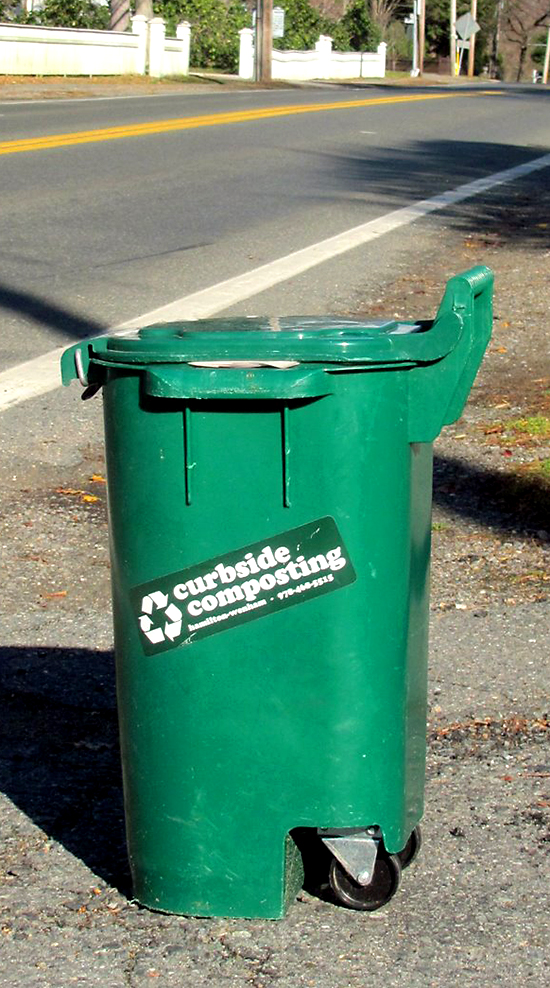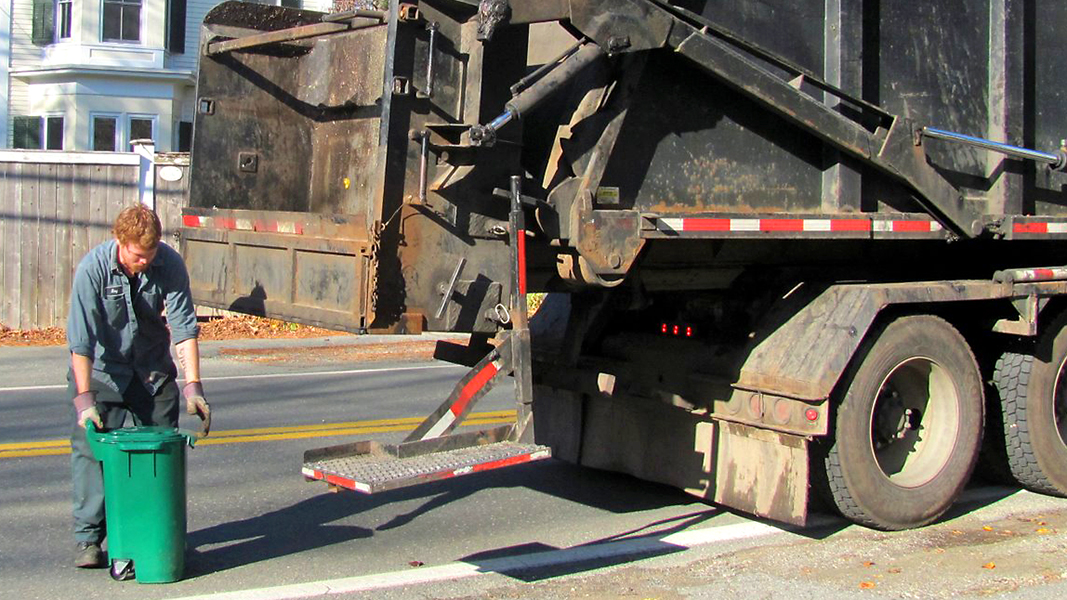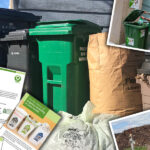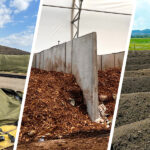On April 1, 2012, the Town of Hamilton (MA) provided each residential household with a 13-gallon organics green collection bin, a 2-gallon counter top collector, and free weekly curbside organics collection. Allowable items include all food scraps, soiled compostable paper, BPI-certified compostable bags and PLA bioplastic foodservice ware. The source separated organics collection program was launched, notes the Town of Hamilton’s website, because the compostable portion of its waste was 25% by weight, “and since we pay by the ton, every pound of compostables we take to Brick Ends Farm is money saved. [Second], everything we put in the trash is taken to a facility in North Andover and burned. The wet garbage takes the most energy to burn, and it adds significantly to carbon emissions.”

New organics ban does not allow households to put food scraps and compostable paper in their trash bins but instead put them in their green bins for composting.
To increase participation in the voluntary program, the town’s Board of Selectmen (BOS) had adopted every-other-week (EOW) trash collection in 2019. But in Spring 2020, it suspended EOW black barrel pickup program to avoid imposing hardships on families during the pandemic. Since then, the BOS has been searching for other ways to reduce the amount of trash generated by residents. The solution? In late December, the BOS passed an Organics Ban that bans residents from putting food waste and compostable paper in their trash. The ban, which goes into effect on February 1, 2021, “has the potential to reduce our trash by up to 30%,” notes a press release issued by the BOS.
Gretel Clark, chair of the Hamilton Waste Reduction Committee, said that when the curbside program began in 2012, participation reached as high as 50%. “Then it dropped to about 37% over the years,” she explains. “In light of global warming and the town’s need to find ways to motivate residents to not only reduce their trash tonnage, but provide them a way to take part in efforts to reduce carbon and methane going into the atmosphere, our Committee wrote the ban that our Board of Selectmen passed recently.”
For enforcement, the ban requires that every household have their green bin curbside each week. If the green bin isn’t curbside, then the hauler will not pick up the black barrel. “At this time, no one will be inspecting the bins/barrels and no fines will be issued for noncompliance,” continues the press release. Households that are active backyard composters may apply to the Hamilton Department of Public Works (DPW) for an exemption from the ban. If approved, a DPW-issued exemption sticker is affixed to the trash can and the hauler can pick up the trash even though the green bin is not curbside.
The BOS will continue to monitor the tonnages of trash and organics collected by the hauler. If the trash tonnages do not decrease, then the BOS may take other steps in the future to try to elicit compliance with this ban. These could consist of increasing the price of the blue trash bags that the town sells to households that generate more trash than can fit in the DPW-issued 35-gallon black bin, returning to EOW, implementing notices/fines for non-compliance, etc.










